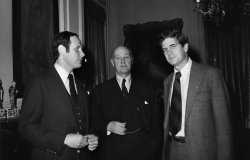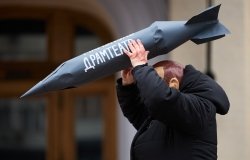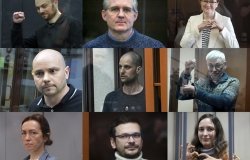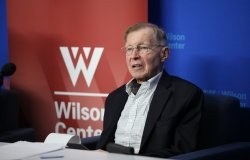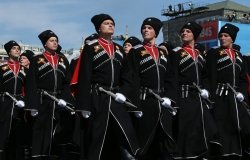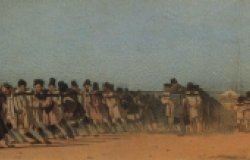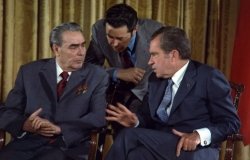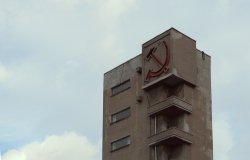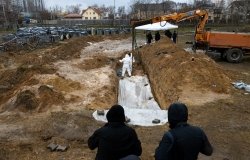The Fifteenth Anniversary of the End of the Soviet Union: Recollections and Perspectives
"I thought I might start out by addressing what I consider some of the most damaging and mistaken myths about the breakup of the Soviet Union [in 1991], because I think that these are very widespread," said Jack F. Matlock, Jr., former George F. Kennan Professor, Institute for Advanced Study, Princeton University, and former U.S. Ambassador to the USSR (1987-91) at a 13 December 2006 panel discussion. Matlock was joined by Stephen Cohen, Professor of Russian Studies and History, New York University; James Collins, Senior International Advisor, Akin Gump Strauss Hauer & Feld, LLP; former Deputy Chief of Mission and Charge d'Affaires, U.S. Embassy, Moscow (1990-93); and former U.S. Ambassador to the Russian Federation (1997-2001); Wayne Merry, Senior Associate, American Foreign Policy Council, Washington, D.C., and former Chief Domestic Political Analyst, U.S. Embassy, Moscow, (1991-94); and Richard Miles, Executive Director, Open World Leadership Center, Washington, D.C.; former U.S. Consul General, Leningrad (1988-91); and former U.S. Ambassador to Georgia, to Bulgaria, and to Azerbaijan.
The first of these myths, according to Matlock, is that the Cold War ended in 1991 with the end of the Soviet Union. The Cold War ended in December 1988, and diplomacy in the following years consolidated the peaceful end of that conflict. A second myth is that the Cold War is considered a victory of one country over another. Matlock noted that Ronald Reagan had written that it was the victory of one system over another. The end of the Soviet Union is a separate matter from the end of the Cold War, emphasized Matlock. Mikhail Gorbachev, capitalizing on the end of the Cold War, enacted reforms intended to improve the Soviet state, which effectively ended communist control over the country. As a result, internal pressures intensified and culminated in the end of the Soviet Union—a result that would not have been possible if the Cold War had not ended, Matlock contended. A third myth is that the end of the Soviet Union came as a complete surprise to U.S. policymakers. That is not true, according to Matlock. Through painstaking diplomatic reporting, the Moscow embassy had a clear picture of what was going on, and Matlock had advised the administration in June 1990 to begin making contingency plans for the breakup of the Soviet Union.
Merry contended that the end of the Soviet Union represented a tremendous geopolitical shift that is still changing the United States and Europe. "Almost all of our policies around the world were in whole or in part defined by that rivalry," he said. Fifteen years later, he continued, "capitals on both sides of the Atlantic haven't quite yet accepted the fact that that which joined us together then is no longer joining us together now or in the future." Merry also noted that many observers today do not fully appreciate the attention paid by the U.S. government to "so-called nightmare scenarios" such as loose nukes, the disintegration of the Russian Federation, and large-scale migrations.
Miles recounted his experiences as Consul General in Leningrad, where with a small staff he reported on democratic reformers in Northwest Russia and nationalist leaders in the Baltics from 1988-91. Miles spent his tenure building personal relationships with Soviet officials and other members of society, and his staff worked to do the same. These efforts paid dividends. In the Baltics, his frequent visits drew international attention to a series of standoffs between Soviet troops and local leaders. In Leningrad, officials that he had built relationships with went on to play key roles in opposing the 1991 putsch attempt.
Collins discussed the international context of U.S. policy toward Russia through the mid-1990s. The Soviet collapse brought a group of new states onto the world stage and raised a host of complex problems that did not always receive adequate attention. "Bureaucracies do not do well with revolutions," Collins said, adding that the policies put into place to try to aid the transition in Russia often lagged events on the ground. "If all you have is a hammer, everything looks like a nail," observed Collins, and "to some extent that meant that economic tools, [such as] loans that could be done reasonably expeditiously…became the tools of policy." If American policy failed to respond adequately to the dislocations produced by the end of the Soviet Union, according to Collins, "it was more than anything else a simple fact that we were ill-equipped…to take on the question of coping with something that was at least as big—if not bigger—than the American depression in the thirties."
Cohen observed that American scholarly opinion about the end of the Soviet Union evolved from "it is unthinkable" in 1990 to "it was inevitable" in 2002. Of the several explanations put forward for the Soviet breakup, Cohen argued that the most plausible is that it was driven by a struggle between two leaders of extraordinary political will: "Gorbachev with a will to reform" and "Yeltsin with a will to power." Meanwhile, by 1991, Soviet elites "were more interested in privatizing the state's great assets than in preserving it." Cohen concluded by urging American scholars to engage the growing belief among Russian scholars that "with the end of the Soviet Union, Russia lost yet another chance to modernize politically and economically through gradual rather than catastrophic means."
About the Author


Kennan Institute
The Kennan Institute is the premier US center for advanced research on Eurasia and the oldest and largest regional program at the Woodrow Wilson International Center for Scholars. The Kennan Institute is committed to improving American understanding of Russia, Ukraine, Central Asia, the South Caucasus, and the surrounding region though research and exchange. Read more
